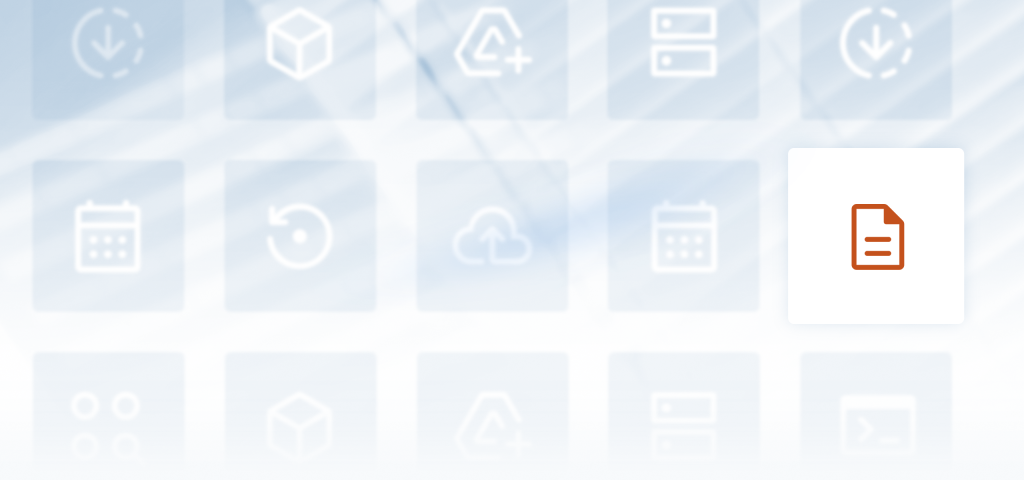7 reasons why your WordPress site is slow (and how to fix them)
Why is my WordPress site so slow?
If you’ve ever typed “why is my WordPress site so slow?” into Google while watching your site load at the speed of a dial-up modem… you’re not alone.
A slow WordPress site is frustrating. Not just for your visitors, but for you too – especially if you’ve poured time and love into your content or products. And unfortunately, speed isn’t just about user experience anymore. A sluggish site can tank your search rankings, lower your conversion rate, and even scare off potential customers.
But here’s the good news: speeding up your WordPress site is entirely within your reach.
We’ve helped thousands of site owners fix slow load times with WP-Optimize. In this guide, we’ll walk you through 7 of the most common culprits behind a slow WordPress site, plus practical tips (and tools) to help you fix them.
1. Bloated or unoptimised images
Section titled 1. Bloated or unoptimised imagesLet’s start with the low-hanging fruit. Unoptimised images are probably the number one cause of slow-loading pages.
Have you ever uploaded a 4MB photo directly from your phone, then scaled it down inside WordPress? It might look smaller, but the file is still massive, and your users are forced to download the whole thing.
The fix:
Section titled The fix:Compress your images before upload – or better yet, let a plugin do it for you.
WP-Optimize’s image compression automatically reduces file sizes with minimal impact on quality. You can also set it to convert images to more efficient formats like WebP, which loads much faster.
2. Too many (or heavy) plugins
Section titled 2. Too many (or heavy) pluginsPlugins are amazing… until they’re not.
One of the best things about WordPress is how easy it is to customise with plugins. But each plugin adds weight to your site. Some load extra scripts and styles on every page, even when they’re not needed. Others can conflict with one another or run inefficient database queries.
Think of it like a backpack: a few items are fine, but overpacking slows you down.
The fix:
Section titled The fix:Do a plugin audit. Go through your list and ask:
- Do I really use this plugin?
- Is it well maintained and regularly updated?
- Could I replace multiple plugins with one that does it all (like WP-Optimize)?
Once you’ve cleaned house, test your site speed before and after. You’ll likely see a noticeable difference.
3. No caching in place
Section titled 3. No caching in placeThis one’s a biggie.
WordPress is dynamic. That means it builds each page on the fly when someone visits, pulling together bits from your database, theme files, and plugins. That’s great for flexibility, but not so great for speed.
Every visit triggers the same process again. That’s like baking a fresh cake for every customer instead of slicing one you’ve already made. Even if you do have in place on your site there are a few common caching mistakes you can make too.
The fix:
Section titled The fix:Add page caching.
WP-Optimize’s page caching stores a static version of your site and serves it up quickly to repeat visitors. It reduces server load and can speed up page load times dramatically – especially during traffic spikes.
Bonus: WP-Optimize’s caching also includes options for Gzip compression, browser caching, and even cache preloading.
4. An overloaded or bloated database
Section titled 4. An overloaded or bloated databaseYour WordPress database is the engine behind your site. But just like any engine, it needs maintenance.
Over time, your database collects clutter: post revisions, spam comments, trashed posts, old transients, and more. If you’ve ever had a site running for a few years with frequent updates, that mess can add up.
The fix:
Section titled The fix:Clean and optimize your database regularly.
WP-Optimize’s database optimisation tool makes it super simple. It lets you:
- Remove post revisions
- Clear out spam and trash
- Delete expired transients
- Defragment and optimise database tables
Think of it like a spring clean for your site’s backend. You wouldn’t let your cupboard overflow with junk – so don’t let your database do the same.
5. Poor quality hosting
Section titled 5. Poor quality hostingLet’s get real: hosting matters.
You could have the leanest, most optimised WordPress setup – but if your hosting provider is slow, you’re still stuck in the mud. Cheap shared hosting plans often put hundreds of sites on the same server. If one site gets a traffic surge or runs inefficient code, everyone suffers.
It’s like living in a house share where one person uses up all the hot water every morning.
The fix:
Section titled The fix:Upgrade to a quality hosting provider.
Look for WordPress-specific or managed hosting that includes performance optimisation, fast servers, and solid support. Even better if they offer caching at the server level.
Still stuck on budget hosting? WP-Optimize can help you squeeze every ounce of performance out of your current setup by reducing unnecessary server load.
6. Outdated themes or plugins
Section titled 6. Outdated themes or pluginsThis one often flies under the radar. Old themes and plugins might still work, but that doesn’t mean they’re efficient.
Outdated code can create performance bottlenecks, compatibility issues, and even security vulnerabilities. Some older themes also load bloated scripts or unnecessary fonts by default.
The fix:
Section titled The fix:Keep everything updated.
- Regularly update your plugins and themes (after backing up, of course).
- Remove ones you’re not using.
- Consider switching to a lightweight theme that’s optimised for performance.
And always, always back up your site before making changes. Our sister plugin, UpdraftPlus, is perfect for this – it makes it easy to back up and restore your site with confidence.
7. Too many external scripts and embeds
Section titled 7. Too many external scripts and embedsExternal scripts – like ad networks, social feeds, tracking pixels, and font libraries can significantly slow down your site. Every external file your page relies on is another request that needs to load… and if the server on the other end is slow? Your whole site can get held up.
Ever waited ages for a YouTube video or Instagram embed to load? That’s what we mean.
The fix:
Section titled The fix:Be intentional about what you include.
- Remove unnecessary widgets and embeds.
- Host fonts locally if possible.
- Use a performance plugin to defer non-critical scripts so they load after your main content.
WP-Optimize includes settings to help with this, and there are also tools like Asset CleanUp or Perfmatters if you want finer control.
Bonus: If you don’t know what’s slowing things down
Section titled Bonus: If you don’t know what’s slowing things downSometimes it’s not obvious what’s causing the problem. That’s when tools come in handy.
Try running your site through:
These services will highlight your biggest performance issues and give you recommendations on how to fix them. From there, you can use WP-Optimize and other trusted tools to take action and speed up your site.
Speed up WordPress in one click
Don’t waste hours troubleshooting slow load times. WP-Optimize Premium combines caching, database cleaning, and image compression to give your site the speed boost it needs – automatically.
TL;DR: Top 7 reasons your WordPress site is slow
Section titled TL;DR: Top 7 reasons your WordPress site is slowIf you’re short on time, here’s a quick breakdown of the most common speed issues and what you can do about them:
- Bloated images – Compress large images before or after uploading.
- Too many plugins – Audit your plugins and remove what you don’t need.
- No caching – Enable page caching to serve static versions of your pages faster.
- Cluttered database – Clean and optimise your WordPress database to reduce load times.
- Poor hosting – Upgrade to better hosting or reduce server strain through optimisations.
- Outdated code – Keep everything updated and backed up.
- External scripts – Minimise third-party scripts and defer non-critical assets.
Still wondering “why is my WordPress site so slow?”
The truth is, slow load times usually come down to a handful of fixable issues: uncompressed images, too many plugins, poor caching, or a bloated database. The key is knowing where to look and having the right tools to clean things up.
Want to speed up your WordPress site the smart way?
Section titled Want to speed up your WordPress site the smart way?Get started with the free version of WP-Optimize to clean up your database, enable caching, and compress images automatically.
Or, if you want powerful extras like lazy loading, advanced scheduling, and multisite support, check out WP-Optimize Premium.
Why is my WordPress site so slow all of a sudden?
A sudden drop in speed can be caused by a new plugin, theme update, increased traffic, or even changes on your hosting server. We recommend running a speed test with PageSpeed Insights to pinpoint the issue.
How do I check what’s slowing down my WordPress site?
Use tools like Google PageSpeed Insights, GTmetrix, or Pingdom. These will highlight what’s causing delays – like large images, slow server response, lack of caching, or unoptimised scripts.
Can too many plugins slow down my WordPress site?
Yes. Every plugin adds some load, and poorly coded or outdated ones can significantly affect performance. Stick to well-reviewed plugins, keep them updated, and remove anything you don’t actually use.
Will changing my theme make WordPress faster?
If your current theme is bloated or outdated, switching to a lightweight theme like GeneratePress, Astra, or Kadence can make a big difference. Themes built for speed often load fewer scripts and are better optimised for performance.
How can I speed up my WordPress site without coding?
Install an optimisation plugin like WP-Optimize. It handles essential tasks like image compression, page caching, and database cleaning automatically – no technical knowledge required.
What’s the best plugin to fix a slow WordPress site?
WP-Optimize is a top choice. It combines multiple performance tools – like caching, image compression, and database optimisation into a single plugin that’s beginner-friendly and highly effective.
About the author

Jelena Janić
Jelena is the Product Manager for UpdraftPlus and WP-Optimize. With seven years of experience, she’s taken on many roles – from tester to developer and now product manager. Along the way, she noticed a disconnect between how products are built and what customers need, sparking a passion for steering products toward solutions that truly serve the people who use them. Today, she ensures every WP-Optimize development decision is geared toward boosting WordPress website performance, enhancing usability, and increasing customer satisfaction.
Categories
WP-Optimize
Get all our premium features. Lazy loading, pre-load key requests, Cloudfare integration. Optimize individual tables, delete unused images and more.
From just $49 for the year.
More stories
-

What is PHP? Beginner-friendly guide for WordPress users (2026)
Learn what PHP is, how it powers WordPress, and why your version matters.
-

Best WordPress plugins for food bloggers
Essential WordPress plugins for food bloggers to improve speed, SEO, and security.
-

Best WordPress themes for health and wellness brands
Explore the best WordPress themes for health and wellness websites, from yoga studios to holistic brands.
-

The 3-2-1 backup rule explained
A simple explanation of the 3-2-1 backup rule and how it keeps your data safe.
